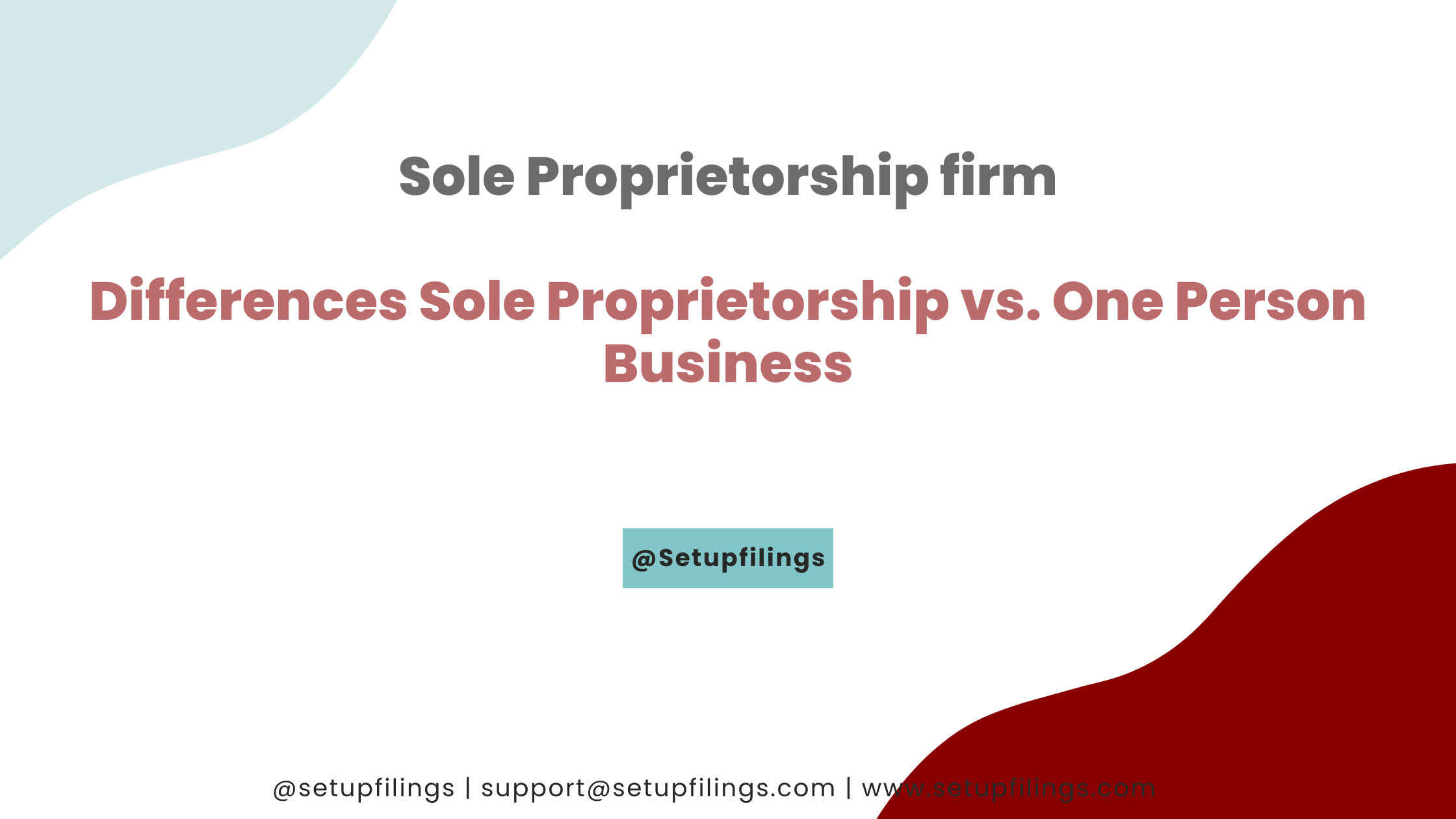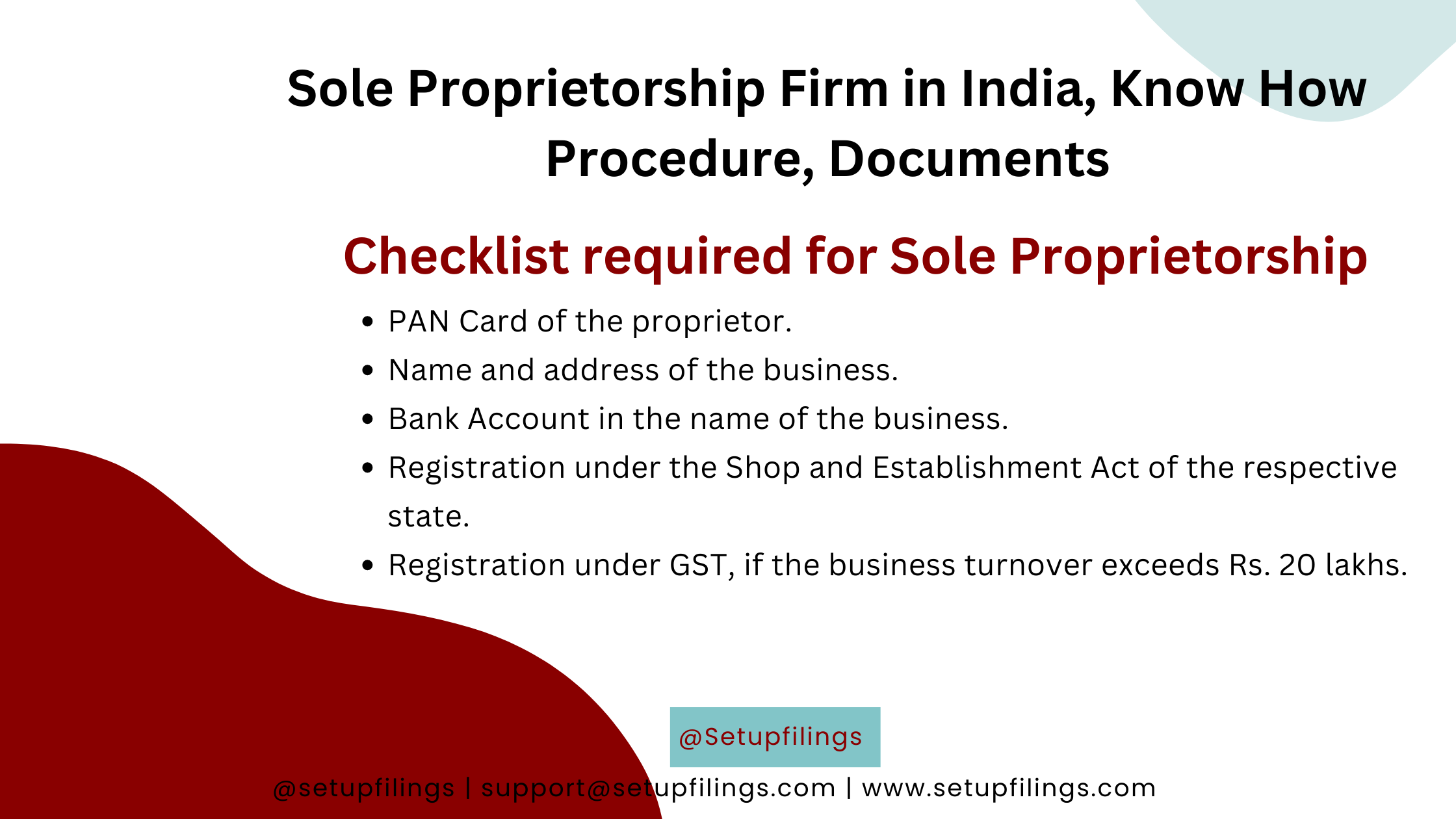
What Are The Advantages And Disadvantages Of Sole Proprietorship?
What exactly is a sole proprietorship?
A sole proprietorship is a business that is owned, controlled, and managed by a single person. A sole proprietor reaps the financial benefits while being personally liable for all risks and responsibilities associated with running a firm. It is appropriate for independently managed professions such as hairdressers or small retail enterprises.
Single Proprietorship Characteristics
The following are the primary characteristics of a sole proprietorship:
• Legal Formalities – There are no legal formalities necessary to start or close a single proprietorship. Nonetheless, the proprietor must obtain a particular license or certificate to operate the firm in certain vocations. A lone entrepreneur wishing to open a pharmacy, for example, must hold a pharmacist’s degree.
• Unlimited Liability – The lone owner is personally accountable for the financial transactions’ success or failure. If the proprietor obtains a loan and fails to return it, the creditors have the right to seize the company owner’s property in order to reclaim the payment.
• Risk and reward – A solo entrepreneur has entire control over their company’s earnings and losses.
• Control – A sole proprietorship’s rights and duties are exclusively with its owner. Without prior authorization, no one else may interfere with a lone proprietor’s business activity.
• Distinct Entities – With the exception of sole proprietorships, the owner and their business are separate entities in most types of business organizations. The entity has no identity without the owner since that individual is in charge of the day-to-day operations of the firm.
• Business Continuity – The existence of a firm is linked to its owner. Events such as the single proprietor’s death, bankruptcy, jail, terminal illness, and so on might have a negative impact on the firm or compel it to close down permanently. If the lone owner has a legal successor or beneficiary, that person may operate the business if the proprietor is unable to continue.
Also Read: How to Register Sole Proprietorship in India?
The Top Advantages of a Sole Proprietorship Company
A sole proprietorship has several benefits. This is a summary of the most important advantages of operating as a sole proprietorship.
1. Simple to set up
Sole proprietorships are the most basic and least costly business structure. They do not need official registration.
Single owners are exempt from notifying state or federal officials of their company registration. As a result, the only costs required are registering the company name and obtaining the necessary licences or licenses.
2. Reduced paperwork
Many tasks are involved in the Registration of a business. One of the most hated of them is paperwork or documents.
Most ‘would-be’ business owners do not want to spend their time going through the time-consuming procedure of establishing their company as a corporation. As a result, a single proprietorship is the greatest alternative for such persons.
A solo proprietorship requires substantially less paperwork. As a result, company owners may focus their time creating business strategies to avoid hazards in the long run.
3. Easy tax computations
One advantage of being a single owner is that taxes are easier. In comparison to other company designs, the tax obligations are quite simple.
Sole owners, unlike other company kinds, are not needed to get an EIN. Moreover, they have the option of paying workers using their Social Security number.
Sole proprietorships are not treated as distinct legal entities. As a result, company revenue and losses are declared on the owner’s income tax return. Sole proprietors do not required to submit separate taxes for personal and commercial activities.
Apart from this, sole proprietors benefit from specific tax benefits associated with small business deductions.
4. Adaptability and liberty
One of the most sought-after benefits of a single proprietorship is the owners’ flexibility and independence.
As a lone proprietor, the owner has complete control over the firm. The solitary owner is solely responsible for making decisions.
Moreover, single proprietorships are not subject to stringent trade rules or other obstacles. Sole owners might thereby avoid the time and effort required to comply with trade requirements.
As a result, the degree of operational freedom is greater with sole proprietorships.
5. Reduced business fees
Launching a new business on a shoestring budget is not unusual. Numerous people design their endeavors with little funds. The single proprietorship is the optimal company form for such entrepreneurs.
Owners of sole proprietorships may save money on registration. A single proprietorship, unlike a Private Limited Company Or Limited Liability Partnership, does not need an annual fee to retain registration. As a result, the legal requirements and associated expenditures of a sole proprietorship are much lower.
As a result, a single proprietorship is quite inexpensive. A single proprietorship firm may be readily established if the enterprise is well-planned from the outset and with complete devotion.
6. Uncomplicated ownership rights
A single proprietorship makes it easy to run a company. There are no other components involved, such as registration agents or business executives.
The single owner is solely responsible for all decisions, money, and other aspects of the business. The single company owner determines how the endeavor will operate.
Having stated that, there are no issues with boards, executives, or other roles in standard corporate structures that involve the transfer of part ownership and control rights.
Moreover, sole proprietorships are not officially registered. As a result, some liberty and privacy are preserved. The proprietors are allowed to run their firm as they see fit.
7. Simple and straightforward banking characteristics
A solitary proprietorship has the benefit of requiring simple banking.
A convoluted financial procedure, like taxes, causes complications. Banking is straightforward under this company form, which is one of the finest advantages of a sole proprietorship.
The owner’s personal account may be used as the company account. Nonetheless, it may take some time to segregate costs during taxes. As a result, having a separate business account is recommended.
Isn’t it rather straightforward?
8. There is no limit to the number of employees that may be hired in a single proprietorship. This will help the company to expand, reach more people, and build a stronger workforce.
Nonetheless, while recruiting personnel, it is always vital to keep an eye on the corporate budget.
What are the Disadvantage of Owning a Sole Proprietorship?
We cannot assert that a solitary proprietorship has just benefits. A solitary proprietorship has some downsides as well.
To operate a company efficiently, one must understand both the advantages and disadvantages of being a single owner. Hence, here is a list of the drawbacks of running a single proprietorship firm!
1. Indefinite liability
The most major drawback of a solo proprietorship is the lack of liability protection. Since there is no legal corporate idea, every commercial responsibility is a personal liability.
As a result, although the owners have the flexibility to manage and make choices on their own, they are also totally responsible for the firm. This responsibility extends to the assets of both the corporation and the owner.
In other words, if the owner is unable to settle their obligations, creditors may seize their personal property, money, automobiles, and so on.
As a single owner, you might take out a personal loan, sign a personal guarantee, and put personal assets up as security. In the event of a loan default, the bank has the authority to confiscate the owner’s assets. As a result, suitable insurance is required as a precaution.
2. Capital-raising difficulty
The difficulty of getting funds is a big drawback of having a solo proprietorship.
Even if the startup expenses are substantially cheaper with a single proprietorship, financing the firm is tough. But why is this so?
Because banks like to lend to established firms. Moreover, since their income is higher, such businesses are seen to have a great credit history.
A sole proprietorship is entirely dependent on the money, investments, and credit history of a single owner. As a result, banks and other lenders are often skeptical about repayment.
3. It is difficult to sell the company.
In general, entrepreneurs do not like to think about selling their enterprises. But, as the owner, it is reasonable to consider transferring the baton.
Selling a single proprietorship firm is difficult for a variety of reasons. If the company is very lucrative, selling it would result in a large capital gains tax.
This tax is levied on corporate profits from the beginning to the end. It may account for up to 49% of overall profits.
Moreover, selling a single proprietorship firm entails selling the debts. New businesses may have more obligations than earnings. This often makes predicting earnings for prospective purchasers difficult.
4. Lack of financial control
Financial reports are not required as part of company operations in a sole proprietorship.
Moreover, a single person is in charge of final marketing, accounts, tactics, and so on.
Since sole owners are sometimes overburdened with so many obligations, they may neglect a few commercial transactions. This may also be the source of a substantial lack of financial control. It may also create a number of commercial hazards.
Keeping track of company expenditures – overhead expenses, labor charges, utilities, and so on – may be difficult. And this may have an influence on the company’s total revenue, profits, and losses. As a consequence, taxing will be challenging.
5. Inadequate managerial abilities
A solo owner is solely accountable for making choices. As a result, one downside of a single proprietorship is the owner’s inadequate managerial abilities.
The solo entrepreneur may not have all of the necessary abilities to run the firm effectively. Although employing specialists is an option, financial restrictions may still be an issue.
Overall, this disadvantage tends to impede the expansion of the firm.
6. Decision-making risk
One of the biggest downsides of a solitary proprietorship that many individuals overlook is the possibility of making poor judgments.
As previously said, the ultimate choice of any business function is made by the owner.
A solitary proprietorship firm has no one to help with decision-making.
As a result, the danger of decision-making mistakes is greater in single proprietorships.
7. There are no economies of scale.
Large-scale commercial entities also benefit from large-scale economics. This implies companies can create more while incurring lower overhead expenses per product.
Yet, this is difficult for single proprietorships to accomplish.
As a result, the cost of producing single proprietorships is often expensive. As a result, competing with bigger corporations becomes rather difficult for single proprietorship enterprises.
Visited 194 Times, 1 Visit today


